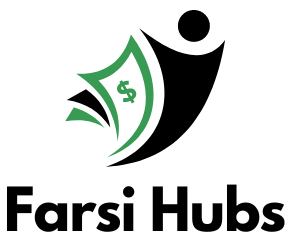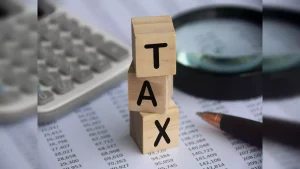Tax savings are an important part of good financial health because they help people and businesses get the most out of their investments and wages. This book describes various ways to save taxes. It gives you a way to understand the complex tax system and take advantage of the opportunities to reduce your tax bill.
How the tax system works
Income tax, capital gains tax, and self-employment tax are some of the different types of taxes that make up the tax system. To properly plan your taxes, you need to understand these taxes. Income tax is a tax on money you earn from work and other sources. Capital gains tax is a tax on the money you make when you sell a good. Self-employment taxes pay for Social Security and Medicare costs for business owners and freelancers. Understanding these differences is important when finding ways to save taxes.
Take advantage of tax benefits
Deductions reduce your taxable income, potentially putting you in a lower tax bracket and lowering your overall tax bill. The standard deduction and itemized deductions are the two main types of deductions. The IRS sets a fixed amount for the standard deduction, which is subject to annual adjustments for tax status and inflation. For itemized discounts, you’ll want to carefully track expenses such as mortgage interest, state and local taxes, charitable contributions, and medical bills. To take advantage of these deductions, you must keep good records and understand which expenses qualify.
Receive tax credits
Tax credits reduce the amount of tax payable directly, that is, by the same amount as the tax payable. They often save more than they can deduct. The income tax credit is available to people with a low to middle income. Families can get help through the child tax credit, and there are many college credits available to help students and their families. Each credit has its eligibility criteria and can significantly reduce your tax bill.
Retirement savings and tax deductions
Putting money into retirement accounts like 401(k)s and IRAs not only protects your financial future but also helps you pay your taxes now. These payments can reduce your taxable income this year, and the earnings grow deferred so you don’t have to pay taxes on them until you retire.
Health Savings Accounts and Flexible Spending Accounts
An HSA or FSA allows people to save money before taxes to pay for medical expenses. This reduces their tax revenues. HSAs are great because they help pay taxes in three ways: contributions are tax-deductible, the account grows tax-free, and withdrawals for approved medical expenses are not taxed. FSAs are similar, but are set up by employers and can be used to pay for health care and child care expenses. They save taxes by allowing you to contribute pre-tax.
Investment and capital gains strategies
The choices you make about your investments can have a significant impact on your taxes, especially when it comes to capital gains. Usually, short-term investments are taxed more heavily than long-term investments. Tax loss harvesting is one way to get the best tax position. With this strategy, you sell stocks at a loss to offset capital gains. Over time, you can save a lot of money in taxes if you know how to handle your investments in a way that minimizes taxes.
Tax credits and deductions for companies
There are many tax breaks and deductions that business owners and employees can take advantage of to reduce taxable income. Expenses such as office supplies, travel, marketing, and a home office can be deducted as business expenses. Strategic tax planning, such as delaying income or accelerating expenses, can also help. Choosing the right business model can also affect how much you save and how much tax you have to pay.
Tax Planning for the Future
Long-term tax planning is important for maintaining good financial health. Planning your estate is one way to ensure your inheritance is safe, but it can also have major tax consequences. Understanding the tax benefits of different investment vehicles, such as Roth IRAs and 529 college savings plans, can also help you save on taxes in the future.
Conclusion
To save taxes effectively, you need to have a deep understanding of the tax system, plan carefully, and make informed decisions. For individuals and businesses that use deductions, credits, and tax-advantaged accounts wisely and make smart investment and business choices, tax liability can be significantly reduced. To maximize your tax savings and ensure you have enough money, stay informed, talk to a tax expert, and be proactive with your tax planning.
FAQs
1. What are the main differences between tax benefits and deductions?
A tax deduction reduces your taxable income and therefore lowers your tax rate. Tax credits, on the other hand, can immediately reduce your tax bill by the same amount. For example, if you qualify for a $1,000 tax credit, that amount will be deducted from your tax bill. Although the deduction increases the amount of taxable income, its value depends on your tax rate.
2. How do I know if I should take the standard deduction or itemize my deductions?
Which option lowers your taxable income more will help you decide whether to itemize deductions or take the standard deduction. If the total of your itemized deductions is more than the standard deduction for how you file your taxes, you can save more money by itemizing your deductions. Both methods of calculating taxes are good, so use both to find the best one.
3. Do people who work for themselves or as freelancers receive the same tax benefits as people who work as employees?
People who work as freelancers or self-employed can deduct many of the same things as employees, plus more things related to business expenses. They can write off expenses closely related to running the business, such as supplies, equipment, travel, marketing, and the costs of running a home office.
4. How do payments to retirement accounts change taxes?
Putting money into retirement accounts such as 401(k)s, traditional IRAs and other qualified plans can reduce your taxable income. This is because these payments are typically made with money that has already been taxed. The tax benefit comes from not having to pay taxes on the money until you withdraw it at retirement.
5. Why do you need a health savings account (HSA)?
There are three tax benefits to owning an HSA: contributions are tax-deductible, funds grow tax-free, and withdrawals for approved medical expenses are not taxed. That’s why an HSA is a great way to save on taxes and plan for future medical expenses.
6. What impact does business income have on taxes?
Certain types of investment income, such as profits and capital gains, are taxable, but not as much as other types of income. Long-term capital gains are taxed at a lower rate than short-term gains. Long-term capital gains are earned on investments held for more than one year. By planning, you can minimize the tax impact of selling your stock and maximize your tax deductions.

